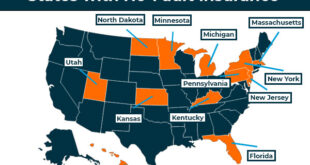Compare Personal Loans: Best Option for Your Needs Personal loans come in many forms, and choosing the right one can be a challenge. By understanding the differences between loan types, terms, fees, and requirements, you can make an informed decision and avoid costly mistakes. Below is a comprehensive guide to comparing personal loans, including tips, FAQs, and concluding insights.
What Are Personal Loans?
Personal loans are a type of installment loan that allows borrowers to access a lump sum, repaid with interest over a fixed period. They can be used for various purposes, including debt consolidation, medical bills, or home improvements.
Types of Personal Loans
- Secured Loans – Require collateral such as a car or home.
- Unsecured Loans – Do not require collateral; eligibility is based on creditworthiness.
- Fixed-Rate Loans – Have a consistent interest rate and payment schedule.
- Variable-Rate Loans – Interest rates may fluctuate based on market conditions.
- Debt Consolidation Loans – Designed to combine multiple debts into one payment.
- Credit Builder Loans – Help borrowers with limited credit history build a positive record.
Factors to Consider When Comparing Personal Loans
1. Interest Rates
- Rates can vary significantly between lenders and loan types.
- Secured loans often have lower rates but require collateral.
2. Loan Terms
- Shorter terms often come with higher monthly payments but less interest over time.
- Longer terms may offer lower monthly payments but incur more interest.
3. Fees
- Common fees include origination fees, late payment fees, and prepayment penalties.
- Look for lenders with minimal or no fees.
4. Credit Requirements
- Many lenders have minimum credit score requirements.
- Borrowers with higher scores often receive better terms.
5. Application and Approval Process
- Some lenders offer fast approvals, while others may take longer.
6. Repayment Flexibility
- Some lenders provide flexible repayment options.
- Check if you can make additional payments without penalties.
How to Apply for a Personal Loan
- Review Your Credit Score – Higher scores generally qualify for better rates.
- Compare Lenders – Consider banks, credit unions, and online lenders.
- Prequalify – Many lenders offer a prequalification process to estimate rates without impacting your credit.
- Gather Documentation – Prepare identification, income verification, and other required documents.
- Submit Application – Complete the application carefully to avoid delays.
10 Tips for Choosing the Right Personal Loan
- Understand Your Needs – Choose a loan type that aligns with your purpose.
- Shop Around – Compare at least three lenders for the best rates.
- Check for Hidden Fees – Avoid loans with excessive fees.
- Consider Loan Term Length – Balance monthly payments with total interest.
- Look for Flexible Repayment Options – Some lenders allow early payments without fees.
- Know Your Credit Score – Helps you target lenders likely to approve you.
- Use a Loan Calculator – Estimate monthly payments and total cost.
- Read Reviews – Learn from other customers’ experiences.
- Ask About Interest Caps – Protects against high interest rates on variable-rate loans.
- Avoid Loans with High APRs – Higher APRs can cost significantly more over time.
10 Frequently Asked Questions
- What is the best interest rate for personal loans?
- Rates vary by lender and borrower creditworthiness, but lower rates are better.
- Do personal loans require collateral?
- Secured loans require collateral; unsecured loans do not.
- How quickly can I receive loan funds?
- Some lenders offer same-day funding, while others may take a few days.
- Are there fees associated with personal loans?
- Fees vary; common ones include origination and late payment fees.
- Can I use a personal loan for any purpose?
- Yes, but some lenders have restrictions, so check before applying.
- How does my credit score impact my loan?
- Higher scores often result in better rates and terms.
- Can I prepay my personal loan?
- Many lenders allow prepayment, but check for penalties.
- What’s the difference between fixed and variable rates?
- Fixed rates stay the same, while variable rates may change over time.
- How long do personal loan terms last?
- Typically, terms range from 1 to 7 years.
- Is it better to get a loan from a bank or online lender?
- Both have pros and cons; banks may offer better rates, while online lenders may provide faster approvals.
Conclusion
Comparing personal loans can be daunting, but by focusing on factors like interest rates, fees, and loan terms, you can make an informed choice. Always ensure that the loan aligns with your financial goals and repayment capabilities to avoid future stress. Remember, the best personal loan is one that meets your needs while keeping costs manageable. Research carefully, ask questions, and choose wisely for a loan that helps, rather than hinders, your financial health.
 Gerbang Finance
Gerbang Finance

